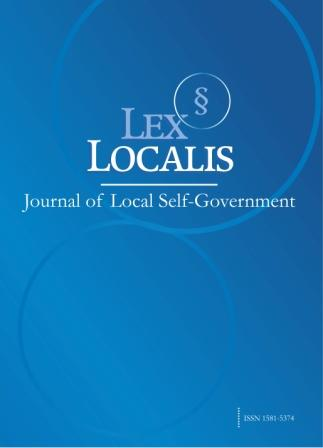A Comparative Study of the Enforcement Systems of Notarized Claims in China and Abroad: Legal Framework, Effectiveness and Challenges
DOI:
https://doi.org/10.52152/800032Keywords:
notarized debt instruments; enforcement; legal framework; enforcement effectiveness; institutional legislation.Abstract
This study thoroughly explores the enforcement system of notarized debt instruments in China and abroad, analyzes the legal origin and framework of the system in China, the effectiveness of its operation, the challenges it faces in practice, and describes the characteristics of the enforcement notarization process that take into account justice. Through the study of the systems of representative countries such as Germany, Japan, France, and Taiwan, it is found that there are differences between jurisdictions in terms of the legal framework, the effectiveness of enforcement, and the challenges faced by different jurisdictions. The study shows that the differences in legislative models stem from the legal traditions of different legal systems, and the normative content focuses on reflecting the economic and social needs of each country. With regard to the effectiveness of enforcement, different provisions on the statute of limitations for commencement and the strength of enforcement had a significant impact on the realization of claims. It also identifies challenges to the enforcement of notarized claims in China, such as the difficulty of notary publics in fully reproducing the truth in the prior examination, the uncertainty of legal authorization of notary publics before issuing enforcement certificates, and the content cycle of the court in enforcing notarized claims. At the same time, it puts forward suggestions to improve the enforcement system of China's notarized claims, including improving the legislation of the enforcement system of notarized claims, standardizing the notarization procedures of notary public institutions to enhance the effectiveness of enforcement, and rationally interpreting the rules of judicial review. In order to provide useful reference for China's relevant legislation and judicial practice, and to realize a better balance between justice and efficiency.
References
Maxatov, N. R., & Zhamalbekova, A. S. (2023). Notary's executive inscription. Bulletin of the Karaganda University “Law Series”, 112(4), 106-111.
Bormann, J. (2022). The German Enforceable Notarial Act in Cross-Border Cases. LeXonomica, 14(1), 49-72.
Fiedler, M. . (2022). Post-pandemic estate planning: analyzing the recent changes in remote notarization laws. Seattle University Law Review, 45(2).
Yolanda, M. O. , Azheri, B. , & Fauzi, W. . (2020). Strength of fiduciary deed in the implementation of bad credit execution by financial institutions. International Journal of Multicultural and Multireligious Understanding, 7(5), 593.
Flaga-Gieruszynska, K. (2020). Notarial Deed as an Enforcement Order in the Polish Legal System. Law Ukr.: Legal J., 158.
Miyashita, M. (2022). Comments on the Paper of Professor Dr. Walter H. Rechberger; Clarification of Facts in Austrian Enforcement Law. Effective Enforcement of Creditors’ Rights, 23-26.
Shen, K. L. (2022). Effective Enforcement of Creditor’s Rights in Civil Execution Through Effective Discovery of Debtor’s Assets in Taiwan. Effective Enforcement of Creditors’ Rights, 217-220.
Yuzhanin, N. V. . (2021). Auxiliary law enforcement actions of the creditor in obligations. Current Issues of the State and Law.
Dumitru-Nica, M., & Pristavu, C. S. (2021). What Is Not Well Started by the Creditor, Can End Nicely For the Debtor in the Enforcement Appeal. Eur. JL & Pub. Admin., 8, 82.
Sturzenegger, R., & Gan-Ayush, B. (2022). Revision of the Swiss Debt Enforcement and Bankruptcy Act: The Segregation of Crypto-Based Assets and Data in Bankruptcy Proceedings. Insolvency & Restructuring Int'l, 16, 48.
Bhambhwani, S. M. . (2024). Creditor enforcement and accounting quality: a natural experiment. Journal of Accounting and Public Policy, 46.
Burhanuddin, A., Hadaiyatullah, S. S., & Wisesa, P. (2024). Summons for Court Proceedings Using Registered Mail in the Perspective of Civil Procedure Law. KnE Social Sciences, 545-559.
Gluck, A. R., & O'Connell, A. J. (2022). The Orthodox, and Unorthodox, RBG: Administrative Law and Civil Procedure. Geo. Wash. L. Rev., 90, 1532.
Guo, Z. (2023). Regulating the use of electronic evidence in Chinese courts: Legislative efforts, academic debates and practical applications. Computer law & security review, 48, 105774.
Liang, Q., & Li, Z. (2022). Debt enforcement and the cost of debt financing in M&As. Finance Research Letters, 47, 102620.
Arellano, L. F. V. (2024). The Impact of Nationalization of Public Debt through On-Lending Agreements According to Brazilian Financial Law. Beijing Law Review, 15(2), 708-729.
Nan, L., & Linhui, X. (2023). On the Production of Estate Inventory in the Civil Code—A Comparative Perspective between China and Foreign Countries. Science of Law Journal, 2(1), 7-12.
Batz, L. (2023). Financial market enforcement in France. European Journal of Law and Economics, 55(3), 409-468.
Pakpahan, K. (2022). Problems Of Implementation Of Electronic Land Certificate Arrangements As Debt Guarantee. Prophetic Law Review, 4(1), 70-91.
Downloads
Published
Issue
Section
License
Copyright (c) 2025 Lex localis - Journal of Local Self-Government

This work is licensed under a Creative Commons Attribution-NonCommercial-NoDerivatives 4.0 International License.








